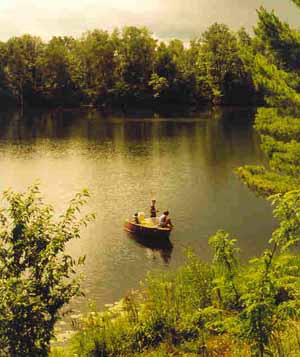NWWC Board Policies & Resolutions

NWWC Policy on Director E-mail Communications DRAFT This has not been approved as policy to date.
In order for the NWWC to function effectively, e-mail has been chosen as a means of communication. In some cases a motion may come to a vote via e-mail. Therefore it is of utmost importance that each NWWC Director be responsible for timely reading of all NWWC e-mail messages and, when called for, a quick reply. The following NWWC policy will help clarify how Directors are expected to handle both incoming and outgoing NWWC e-mail messages:
- If the subject bar includes the term FYI, then this message is intended for information only and no reply is expected. Feel free to voice your opinion but understand that others may not reply.
- If the subject bar includes the words REPLY REQUESTED, each Director is expected to respond, even if your response is just ‘got it’ or ‘thank you’, etc. This will let the sender know that you have seen the message. Often, a REPLY REQUESTED message may help determine future decisions. Directors are encouraged to offer opinions.
- The subject line will include the words ACTION ITEM, REPLY NECESSARY when a motion is on the floor and needs a second or when a motion needs to be voted upon. This may also be used when the President wishes to poll the Board of Directors on an item of importance.
- Please respond to items headed IMMEDIATE REPLY REQUESTED as soon as possible. This term will be reserved only for issues of great concern that are very time sensitive and in need of immediate action by the NWWC.
Directors who neglect to respond to items 2, 3 or 4 above may receive a friendly reminder by phone from the President or his designee. To avoid the need for this, Directors are asked to offer a prompt reply to these messages at their very earliest convenience.
Any Director who expects to be beyond the reach of e-mail should appoint an alternate to receive and reply to messages until such time as the Director can resume this responsibility. Be sure to inform the President and the Secretary of such appointment.
Finally, Directors are encouraged to allow the President to determine whether issues need the attention of the entire Board. To do this, contact the President with your concern or idea by phone, e-mail or in person.
Policy adopted or rejected by a vote of _____ yea to _____nay on May _____, 2009
[if !mso]>
NORTHWEST WISCONSIN WATERS CONSORTIUM RESOLUTION
TO SUPPORT IMPLEMENTATION OF A STATEWIDE BAN ON SALE
AND USE OF TOXIC TERMINAL FISHING TACKLE
Whereas the State of
Whereas these waterways provide wildlife habitat and human recreational opportunities, and
Whereas fishing and hunting is an important recreational and economic resource, and
Whereas these waterways provide wildlife habitat for bald eagles, osprey, loons, waterfowl and an array of other aquatic birds, and
Whereas lead in the form of sinkers, jigs, and other types of terminal fishing tackle is now known to be lethal to ducks, loons, eagles, osprey, and other animals, and
Whereas lead fishing tackle ingestion is known to have injured or killed eagles, osprey, and loons in Northwest Wisconsin, and
Whereas lead poisoning is responsible for up to 31% of loon deaths, and
Whereas many tackle companies are now producing non-lead containing sinkers and jigs, and
Whereas these lead-free products are available
to local tackle supply stores throughout the State of
Whereas the States of Vermont,
Whereas the Northwest Wisconsin Waters Consortium seeks the preservation and health of all aquatic species for the enjoyment of the public, so
Therefore, it is resolved that the Northwest Wisconsin Waters Consortium requests the State of Wisconsin to adopt regulations that phase out the sale and use of toxic terminal tackle on the lakes, streams, and rivers of Wisconsin.
Approved, unanimously
on the 8th day of September, 2009 by the Northwest Wisconsin Waters
Consortium Executive Committee at the Loon Café, Stone Lake,
Waldo Asp, President
Jim Brakken, Vice President
Craig Walkey, Secretary